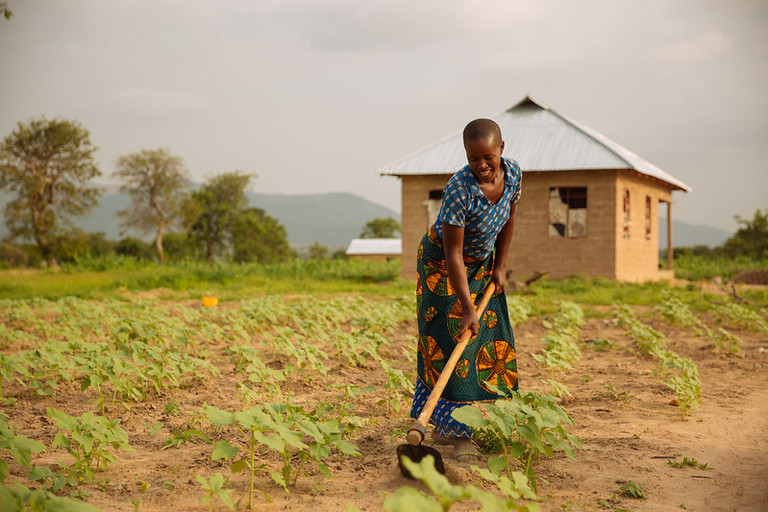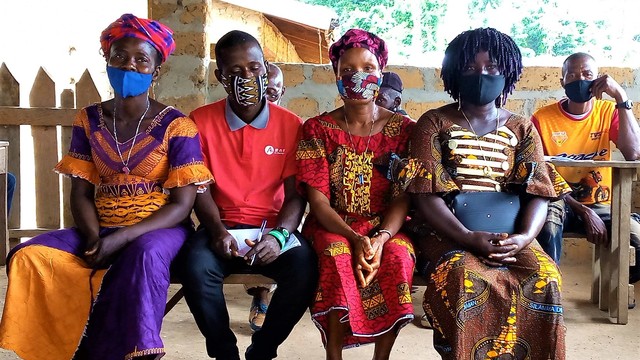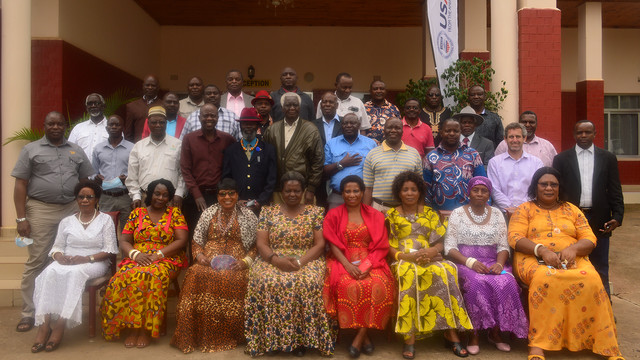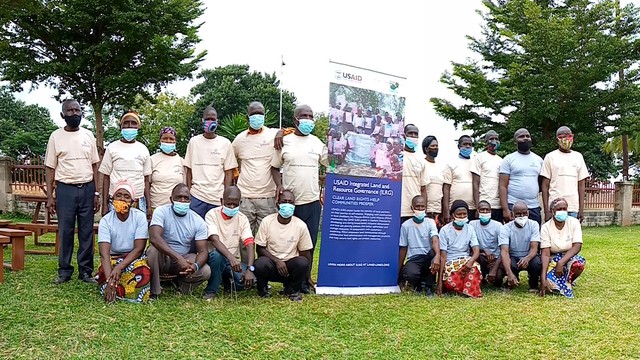Bringing attention to what works for women’s land rights
Coinciding with the International Day of Rural Women on 15 October, IIED launches a new series of blogs exploring core principles that can help to strengthen women’s land rights in the global South.

Women farmer in Tanzania tilling soil. Women's access and control over land is crucial for their empowerment (Photo: Mitchell Maher/International Food Policy Institute via Flickr, CC BY-NC-ND 2.0)
Rights to land are fundamental to the empowerment of many rural African women, whose livelihoods rely on their access to and control over land. However, the promotion of gender equitable land governance has been an open debate for many years in development circles.
Our new IIED blog series 'What works for women’s land rights' focuses on gender and land tenure, and aims to change the paradigm around what works and what doesn’t work to safeguard women’s land rights.
The series is curated by IIED associate Philippine Sutz, in collaboration with partner organisations the Tanzania Women Lawyers Association (TAWLA) and IED Afrique, and it will collect lessons from six years of IIED’s work on gender and land issues.
In the first instalment, 'Blog series probes principles: what works for women’s land rights?', Sutz describes how IIED has unpicked some core principles that could work in favour of women's control over land, regardless of context specific considerations in terms of governance and gender rights.
We have identified core principles we think can make a difference, independently from the context, the type of land tenure and the outcome. We argue that such principles should be at the forefront of any intervention aimed at strengthening women’s land rights – Philippine Sutz
Over the coming months, the blogs – featuring voices from across East and West Africa – will explore these principles in more detail.
Next in the series will be Ibrahima Dia, assistant associate at IED Afrique, who will examine the role of women’s groups in Senegal and analyse the pros and cons of women’s access to land through women’s economic groups.
And Isabella Nchimbi, programme officer at TAWLA, will argue that the use of local legislation, such as bylaws, is an effective way to ensure that gender-sensitive national laws are integrated at the local level, with examples from Tanzania. Other experts expected to contribute to the series include IED Afrique director Mamadou Fall and Mary Richard, head of programs at TAWLA.
Contact
Philippine Sutz (philippine.sutz@iied.org), associate (legal tools team), IIED's Natural Resources research group




